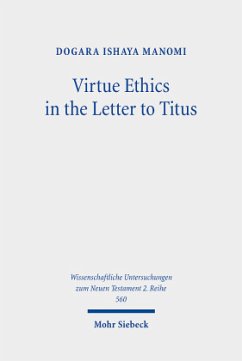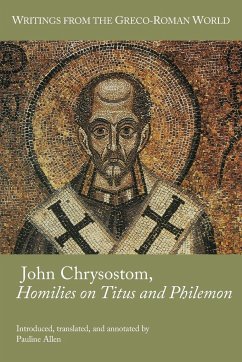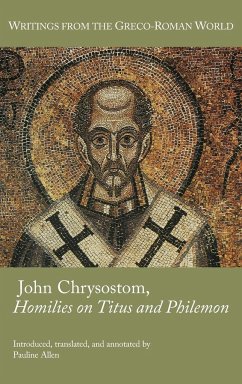Dogara Ishaya Manomi analyzes and identifies the characteristics of (neo-)Aristotelian virtue ethics that are implicitly and explicitly embedded in the linguistic elements, theological motifs, and ethical norms in the letter to Titus. He argues that (neo-)Aristotelian virtue ethics and the ethical perspectives of Titus share the following features: a sense of a moral telos that leads to human flourishing; emphasis on character, habits, and inner dispositions; focus on the morality of persons more than the morality of actions; commitment to moral perfectionism; particularity of moral agents; the concept of moral exemplar; a concern for character development through training or moral education; and a consideration of the moral significance of community. The author concludes, therefore, that there is a significant correlation between (neo-)Aristotelian virtues ethics and the ethical perspectives of the letter to Titus, to the extent that the letter to Titus can be described as a virtue-ethical text. Moreover, his research concludes that the virtue-ethical perspectives of Titus, in comparison with African ethics, have foundational and narrative differences, yet they share some important similarities. However, through progressive hermeneutical negotiations, concessions, appropriations, and application between the two virtue-ethical perspectives, there emerges a new virtue-ethical horizon described as "African Biblical Virtue Ethics," which is, as accountable as possible, faithful to the virtue-ethical perspectives of Titus and "at home" to African Christian ethics. This study was awarded the prestigious Johannes Gutenberg Dissertation Prize.
Bitte wählen Sie Ihr Anliegen aus.
Rechnungen
Retourenschein anfordern
Bestellstatus
Storno








